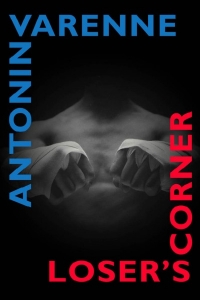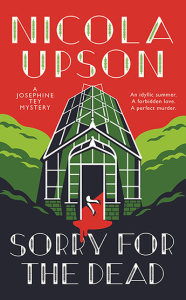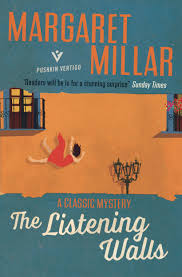Loser’s Corner – Antonin Varenne
 The USA and the UK are the Western powers that have been most involved in the Middle East and North Africa in recent decades. Once though, the leading colonial nation in those areas was France. Raising equally controversial political issues, and with hardly better results. French author Antonin Varenne reminds us of this in this noir – in the French tradition, both more and less than a crime fiction novel – that is at once a historical narrative about the Algerian war in 1957 and a contemporary hard-boiled crime story, liberally sprinkled with bad cops, fixed boxing bouts and ultra right-wing nationalism.
The USA and the UK are the Western powers that have been most involved in the Middle East and North Africa in recent decades. Once though, the leading colonial nation in those areas was France. Raising equally controversial political issues, and with hardly better results. French author Antonin Varenne reminds us of this in this noir – in the French tradition, both more and less than a crime fiction novel – that is at once a historical narrative about the Algerian war in 1957 and a contemporary hard-boiled crime story, liberally sprinkled with bad cops, fixed boxing bouts and ultra right-wing nationalism.
I had previously read Varenne’s ‘Bed of Nails’ (2013), the story of a Parisian police inspector who’s held in such low regard by his superiors that he heads a division investigating those killings where the ‘murderer’ is (apparently) obvious: the Suicide Section. A novel with a classic structure and with characters who are outlandishly extraordinary (including a dead-on-the-job fakir…), which I appreciated indeed.
In ‘Loser’s Corner’ Varenne shuffles the deck and offers relatively ordinary characters but a peculiar narrative structure: the story bounces between the contemporary affairs of George Crozat, a.k.a. “Le Mur” (the Wall), a Parisian street cop and amateur boxer, mostly good for dodgy bouts (great at soaking up punches, hence the nickname), and those of Pascale Verini, young, socialist, idealist and enough of a rebel to be despatched in punishment to the Algerian front in 1957.
For over two thirds of the novel, Varenne alternates chapters featuring these two non-heroes, two losers desperately seeking for something even they can’t quite put a finger on exactly. Le Mur, about to hang up his gloves, is slowly sinking into depression and is available for dirty jobs – beatings and settling of scores – on behalf of a shady DCI from the Major Crimes division. Verini, as soon as he sets foot on Algerian soil, is transferred to a nightmare ‘farm’ in deepest Sahara, where north-African prisoners of war are mercilessly tortured and killed, away from prying eyes and ears (sounds like the opening sequences of ‘Zero Dark Thirty’, and it is).
French noir novels are often far from the English-language and Scandinavian crime fiction canon, and this one is no exception. Varenne’s skill lies in keeping the reader riveted in the absence of a crime or an investigation, and with a plot which sometimes seems a little loose.
I confess that one of the reasons I kept going was curiosity: how will the author manage to tie together the ends of two narrative strands so distant from one another in time, space and atmosphere? It took a little patience but eventually Le Mur, his hands dirty with one of his illegal jobs, will stumble upon the connection between his sordid Parisian underworld and Verini and the senseless atrocities of the Algerian war.
And, though stretching the plot a little, Varenne provides a pacy, dazzling finale with the right note of bitterness, in the best noir tradition.
Varenne writes with spare elegance, in a prose that is as tight in the Parisian section as it’s haunting in the Algerian one. His characters are far removed from cool. No VIPs, rampant cops, criminal geniuses or hero soldier. Instead, an abundance of petty criminals and pettier men of the law, of whores and alcoholic, sadistic paras, of Algerian cut-throats defending their land as best they can. Men who have been mistreated by life, some of them growing old and nursing wounds which they couldn’t, or wouldn’t, let heal.
Not an easy set of materials but Varenne, with the occasional minor stumble, has managed to create a compelling novel, full of common humanity and plot twists, which I found deeply satisfying.






